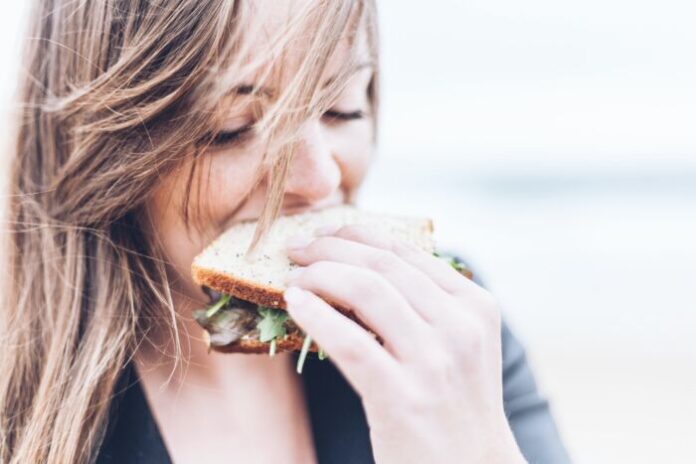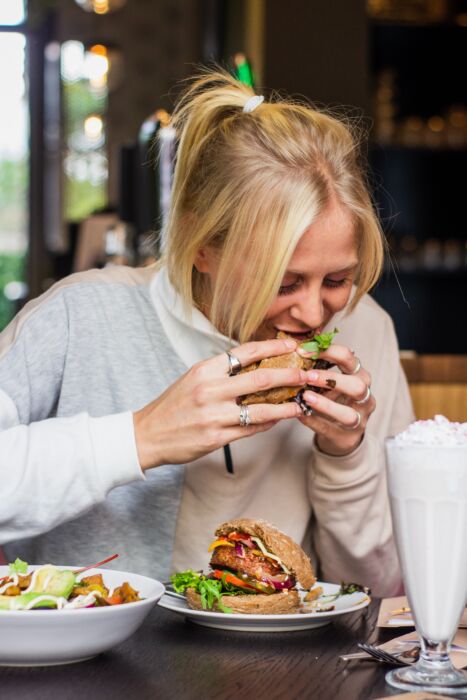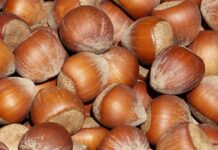
The pandemic we are experiencing has imposed substantial changes on us, it has an impact on our lifestyle habits, as well as on our biological rhythms. Our state of health is put at risk by the infection from SARS-COV2, we must not forget that health also passes from the table.
We have been living a “new life” for about a year. We spend more time at home due to the COVID-19 emergency, we experience daily limitations that are configured as stressors, which risk altering our relationship with food. The latter takes on more psychological than biological connotations, becoming comfort and refuge, rather than energy and a means to satisfy metabolic needs. In other words, the act of eating can take place in response to the so-called “nervous hunger”, with the risk of meaningful metabolic imbalances.
What is nervous hunger?
While biological hunger depends on a “gastric vacuum” and has the purpose of ensuring our body’s daily energy needs, nervous hunger is the tendency to eat food according to a stimulus that we could define “emotional vacuum”, with the ultimate goal “compensation”. The psychological factors from which it originates can be negative feelings such as anxiety, stress, fear, boredom and sadness. The current health emergency and the context we live in are fertile ground for these inputs: food is more at hand and also becomes a “relief valve”, in other words “comfort food”.
Emotional values of food
Seeing and hearing food as an unstoppable source of peacemaker gratification can alter our eating behavior, to the point of creating real “addictions”. When feelings guide our food choices, we are led, by virtue of mechanisms that regulate hunger and satiety finely modulated by hormones at a central level, to consume high-calorie foods, characterized by “empty calories” and a high content of “bad” sugars, salts and fats. Not only do we continually stimulate hunger, for example by increasing blood sugar and continuous stimulation of insulin, triggering a self-feeding cycle, but we risk worsening all metabolic parameters.
The food that consoles can become food that damages our body balance. It is clear that this happens if the wrong attitude is constant, it is not an effect that is triggered if we indulge in a delicious dinner or a few pieces of chocolate here and there during the week. On the other side of the coin, we must consider that the food act can represent an opportunity to make our immune system more efficient, through the supply of specific nutrients or foods rich in functional nutrients. In particular, some vitamins (vitamins A, C, E and D) and some micronutrients (zinc, selenium, magnesium), as well as probiotics, have significant immuno-stimulating properties.
Another fundamental aspect that has undergone considerable variations in the pandemic context concerns the value of food, which has always been understood as “cure”. The act of feeding is configured as an act of love starting from breastfeeding, a physiological source of nourishment and a means by which the mother “takes care” of the unborn child. Throughout life, food is the symbolic mediator of care and the presence of the other, a means of sharing. Presence of the other and sharing which, during the pandemic, is significantly reduced as a result of social distancing, an aspect that undermines part of the “identity” of food itself.

“Tools” for optimal management of the relationship with food
- Awareness and self-analysis. Learn to distinguish emotional hunger from biological hunger: in addition to “feeling the stomach” an important tool can be represented by the food diary. Writing what you eat can be the way to become aware of mistakes and to keep in mind the timing of meals: if we eat an hour after finishing the last meal, it is highly unlikely that ours is a biological hunger.
- Food day planning. It is important to define the daily meals so as not to risk making last-minute choices. We try to let a maximum of 12 hours pass between the first meal and the last meal of the day and to consume 5 meals a day. We plan our day trying not to alter our “biological clock”: the biological rhythms of our body, such as the activity of the heart, liver, gastric and intestinal secretions, adapt to those imposed by the alternation of light / dark, sleep / wakefulness, thanks to the wonderful and tireless work of certain types of brain cells.
- Conscious shopping. Each of us knows his “weak points”, ie the “trigger foods”. We avoid buying these foods. If we really can’t not take them home, we try to create ready and healthier alternatives: we always keep raw vegetables cut and ready for consumption in the fridge. We may not want to clean the vegetables, but if they are ready, we eliminate a reason not to choose these in the “bad moments”.
- Quality versus quantity. We take advantage of the extra time we spend at home to prepare more elaborate and refined meals, aiming for their quality rather than quantity. Let’s focus on raw materials, cooking methods and seasonings. We elevate food to an “experience of value”, as it is full of our imagination and our attention.
- Space-time separation. Let’s dedicate time to the act of eating, let’s not do it while we are in front of the PC or in front of the TV or on the sofa. We eat food in the kitchen, sitting at the table and, at the end of the meal, we go to the bathroom to brush our teeth.
- Bitter taste as a natural anti-hunger. There are foods that activate that neuro-hormonal mechanism that communicates our satiety to the brain. In addition to fiber, we can aim for small quantities of dark (bitter) chocolate or bitter coffee, but above all bitter vegetables, such as chicory, endive, rocket, radicchio, but also cabbage, cauliflower, artichokes and asparagus.
- Distraction and movement techniques. When hunger is felt and it is not the time to eat, it is useful to be distracted by taking another welcome action, such as calling a friend, taking a hot bath, writing, reading and engaging in creative and relaxing activities. Practicing physical activity can represent an activity with a double value, understood both as an excellent distraction technique and as an “energy compensation” (calorie consumption), as well as an activity that stimulates endorphins, known as “molecules of happiness”.
Let us not forget that “It is not the most intelligent of species that survives; it is not even the strongest; the species that survives is the one that is able to adapt and better adapt to changes in the environment in which it is found “.






































